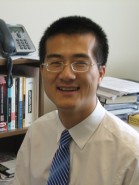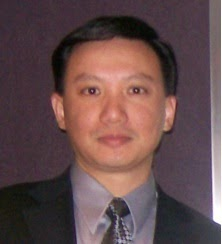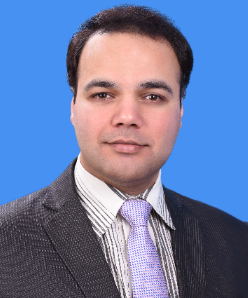| Kwok W. CheungFounder and CEO, KC-Exousia Consulting, USA IEEE Fellow Kwok W. Cheung (Fellow, IEEE) received the Ph.D. degree in electrical engineering from Rensselaer Polytechnic Institute, Troy, NY, USA, in 1991. He joined the GE Grid Solutions (formerly ALSTOM Grid Inc.) in 1991, where he is currently the Director of Research and Development of Network Management Solutions focusing on innovation and technology. He has been a Registered Professional Engineer of the State of Washington since 1994. His current interests include electricity market design and implementation, smart grid, renewable energy integration, energy forecasting, power system stability, and microgrid. |
 | Qinmin YangZhejiang University Qinmin Yang, Professor at Zhejiang University, has been recognized as a Changjiang Scholar by the Ministry of Education. His research primarily focuses on industrial data intelligence, renewable energy and energy internet, and intelligent control system theory. In the past five years, he has led over 10 national-level projects/topics, including jointly funded major projects from the National Natural Science Foundation of China, National 863 Program projects from the Ministry of Science and Technology, intelligent manufacturing projects from the Ministry of Industry and Information Technology, and several large-scale collaborative projects. He has published over 100 academic papers and authored 3 chapters in English books. He has been listed in the annual scientific influence rankings by Stanford University and Elsevier, recognizing him as one of the top 2% of scientists globally. He has also received honors such as the Qianjiang Talent Award from Zhejiang Province and being one of the first outstanding young scholars by Zhejiang University. |
 | Zhenbin ZhangShandong University Zhenbin Zhang is a faculty member at the School of Electrical Engineering, Shandong University, Jinan, China. His research focuses on power electronics, renewable energy systems, and advanced control strategies, particularly in wind turbine applications and motor control. Recent work includes contributions to model predictive control for power converters, sensorless control of AC motors, and distributed control of offshore wind farms. He has published in high-impact journals such as IEEE Transactions on Industrial Electronics and has collaborated with researchers on topics like transient dc offset mitigation and data-driven adaptive control. For more details on specific publications or academic activities, further exploration of his research profile is recommended. |
 | Yiming ZhangFuzhou University Prof. Yiming Zhang, National High-Level Oversea Youth Talent, “Minjiang Scholar” of Fujian Province, Professor of Fuzhou University, Ph.D. supervisor, IEEE Senior Member, Vice Dean of School of Electrical Engineering. He was recognized as the World’s Top 2% Scientist by Elsevier. His research interest is power electronics and wireless power transfer. He has authored one book from Springer and published more than 100 technical papers in renowned journals and conference proceedings. He has an H-index of 44 and has won multiple excellent conference papers including ECCE, EVS, EVCP, and CIEEC. He was recognized as the Outstanding Reviewer for IEEE TPEL and TIE. He is the PI of the Excellent Youth Project and Youth Fund from National Natural Science Foundation of China, the Outstanding Youth Project of Fujian Provincial Natural Science Foundation. |
 | Haochun ZhangHarbin Institute of Technology Hao-Chun Zhang received the B.E., M.E., and Ph.D. degrees from the Harbin Institute of Technology (HIT), in 1999, 2001, and 2007, respectively. He is currently the Head of the Department of Nuclear Science and Engineering and an Executive Professor with the HIT-CORYS Nuclear System Simulation International Joint Research Center (Sino-France). He has about 150 research publications in peer reviewed journals and conferences, five books, and two translations of foreign books. Apart from the main research in the area of engineering thermo-physics, his current research interests include computational energy science, nuclear system simulation, and ultrasonic aircraft thermal protection. |
 | Yajun ChengHohai University Cheng Yajun, Ph.D., Research Fellow, Doctoral Supervisor. Graduated from the Department of Materials Chemistry, School of Chemistry and Molecular Engineering, Peking University in 2000, completing a combined master's and doctoral program from 2000 to 2002. Pursued a master's degree at the Department of Chemistry and Biology, University of Siegen, Germany, from 2002 to 2004. In November 2007, he received his Ph.D. with summa cum laude honors from the Max Planck Institute for Polymer Research/Johannes Gutenberg University Mainz, Germany, and was awarded the 2006 Chinese Outstanding Self-Financed Overseas Student Scholarship. From 2007 to 2010, he served as a Visiting Researcher at the Polymer Division of the National Institute of Standards and Technology (NIST), USA. Joined the Ningbo Institute of Materials Technology and Engineering, Chinese Academy of Sciences in 2010, serving as Associate Researcher (“Chunlei” Program) and Project Researcher; From 2015 to 2017, joined Professor Peter G. Bruce's research group at the Department of Materials Science and Engineering, University of Oxford, UK, under the EU Marie Skłodowska-Curie Actions program; Awarded the title of “Outstanding Mentor” by the Ningbo Institute of Materials Technology and Engineering, Chinese Academy of Sciences in 2021; Joined Hohai University in April 2023. To date, has published over 100 papers in journals including JACS, Angew. Chemie. Int. Ed., Advanced Materials, Nano Energy, ACS Nano, Small, and Energy Storage Materials; authored 8 chapters in English monographs; and holds over 40 authorized Chinese invention patents. In the past five years, has led a total of 15 collaborative projects at the national, CAS, provincial/municipal, and corporate levels. |
| Muhammad JunaidChina University of Mining and Technology Muhammad Junaid received his Ph.D. (2020), M.S. (2015), and B.Eng. (2011) in Electrical Engineering with specialization in Power system engineering. Since late 2020, he has been serving as an Associate Professor at the School of Electrical Engineering, China University of Mining and Technology, Xuzhou, China. Previously, he was a Research Fellow at King's College Aberdeen, University of Aberdeen, in Scotland, and a Lecturer in Power Engineering at the Department of Electrical Engineering, SARHAD University of Science & Information Technology, in Pakistan. Dr. Junaid's research focuses on alternatives to the SF6 gas and key technologies for fault current interruption, including vacuum interrupters, cryogenic dielectrics, and high voltage insulation. He is a Senior Member of IEEE, a member of the Chinese Society of Electrical Engineering (CSEE), the European Society for Applied Superconductivity (ESAS), and IAENG Hong Kong, and a life member of the Pakistan Engineering Council (PEC). He has been involved in 10 funded projects, presiding over 8 of them, and holds 13 patents and 57 publications. |


